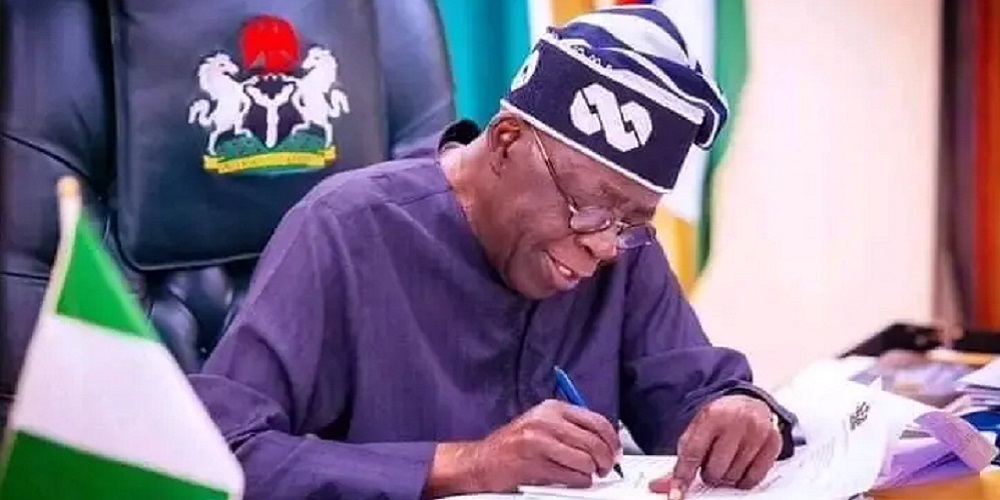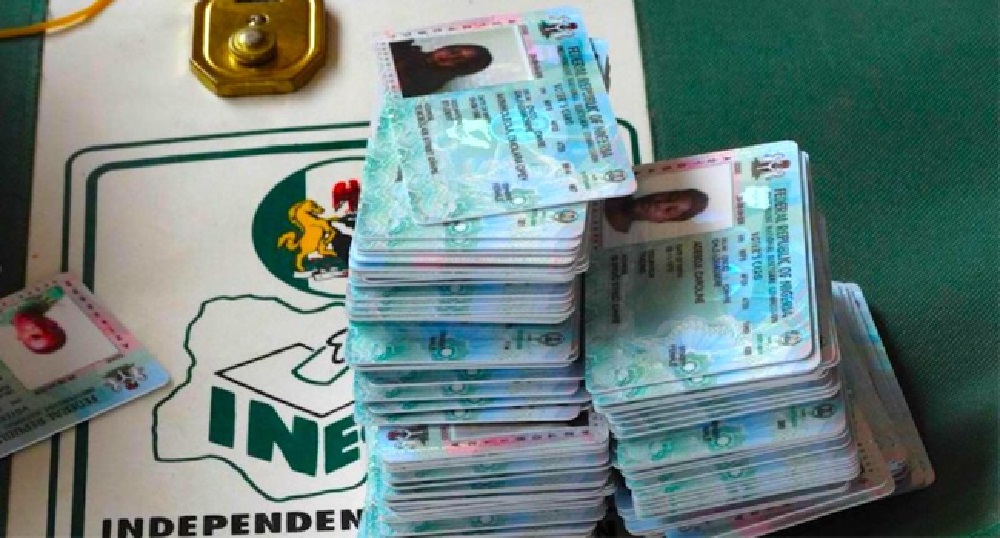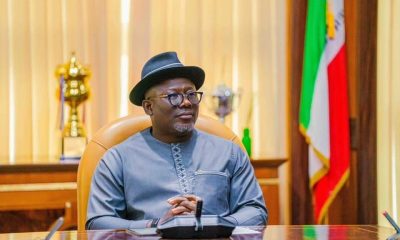News
Tinubu to declare House retreat open Tuesday

Tinubu to declare House retreat open Tuesday
…as Reps engage NNPC, CBN, FIRS, others on PIA, tax reforms
By Gloria Ikibah
The House of Representatives will on Tuesday commence a two-day retreat for members on Tinubu to declare House retreat open Tuesday economic laws, policies, and programmes of the Federal Government, especially under the administration of President Bola Ahmed Tinubu, GCFR.
The retreat has been themed: ‘Economic Transformation & Development: Towards Effective Implementation of the Petroleum Industry Reform Act (2021) and Tax Reforms / Modernisation. The sub-theme is ‘Navigating Change: Legislative Strategies for Economic Transformation.’
President Tinubu is expected to declare the retreat open at the Abuja Continental Hotel (formerly Abuja Sheraton Hotel and Towers), while the Minister of the Federal Capital Territory (FCT), Nyesom Wike, CON, will serve as the host the event.
With the Speaker of the House of Representatives Rt. Hon. Abbas Tajudeen, Ph.D, as the chief host, President of the Senate, Sen. Godwill Obot Akpabio, CON; Deputy President of the Senate, Sen. Barau Jibrin; and Deputy Speaker of the House, Rt. Hon. Benjamin Okezie Kalu, would speak at the event.
Apart from Wike, those expected to deliver goodwill messages at the opening ceremony are the Group Chief Executive Officer, Nigerian National Petroleum Company Limited (NNPCL), Mele Kolo Kyari, OFR; Executive Chairman, Federal Inland Revenue Service (FIRS), Zacch Adedeji, FCA; Clerk to the House of Representatives, Dr Yahaya Danzaria, Esq.; and Resident Representative of Konrad Adenauer Stiftung (KAS), Marija Peran.
The panellists and discussants will include Chairman, Presidential Committee on Fiscal Policy and Tax Reforms, Taiwo Oyedele; Minister of Budget and National Planning, Sen. Abubakar Atiku Bagudu, CON; Minister of State for Petroleum Resources, Oil & Gas, Hon. Heineken Lokpobiri; Governor of the Central Bank (CBN), Dr. Olayemi Cardoso; Chairman, Independent Corrupt Practices and other related offences Commission (ICPC), Dr. Musa Adamu Aliyu, SAN.
The retreat was designed to achieve the following objectives: “Understand the Petroleum Industry Act: Delve into the contents, purposes, and expected outcomes of the PIA, emphasising its significance in transforming the oil and gas sector.
“Legislative Oversight and Implementation: Explore the legislative role in overseeing the implementation of the Act, ensuring its provisions are actualised effectively and align with national interests.
“Stakeholder Engagement and Collaboration: Identify opportunities for collaboration between the parliament, the executive, industry stakeholders, and communities to foster a conducive environment for the Act’s successful implementation.
“Policy and Regulatory Framework: Discuss the development of subsidiary legislation and regulatory frameworks essential for operationalising the Act, including addressing gaps or challenges.
“Drive Tax Reforms: Specifically focus on the parliament’s role in conceptualising, initiating, and implementing tax reforms that are equitable, efficient, and conducive to economic growth.
“Foster Collaboration: Create a platform for dialogue among members, experts, and stakeholders, fostering collaborative efforts towards economic and fiscal reforms.
“Promote Accountability: Emphasise the importance of transparency, accountability, and effective oversight in public financial management and tax administration.
The expected outcome of the retreat include enhanced understanding of the Petroleum Industry Act among members of the Nigeria House of Representatives, a clear roadmap for legislative and oversight roles in implementing the PIA, strengthened collaboration between the parliament, the executive, and other stakeholders in the petroleum sector.
Others are, recommendations for policy adjustments, capacity building, and regulatory frameworks to support the effective implementation of the Act, and deeper insights and knowledge that inform the drafting and passage of legislation supporting economic development and tax reforms.
The retreat would also cause improved capacity for effective oversight of government’s economic policies and public financial practices, ensuring alignment with national development goals.
News
Court orders 54 banks to return N9.3bn stolen by hackers

Justice Deinde Dipeolu of the Federal High Court in Lagos has ordered 54 banks to immediately return a total of N9,329,322,870 fraudulently transferred by hackers from an unnamed old generation bank.
The judgment, delivered on April 15, 2025, follows an ex parte motion filed in suit number FHC/L/CS/629/2025.
The court directed the financial institutions to place a Post No Debit restriction on all accounts that received the stolen funds and to begin the immediate return of all available funds to the originating bank.
The plaintiff bank reported that on March 23, 2025, a breach in its core banking system resulted in unauthorised debits from multiple customer accounts.
The stolen funds—amounting to over N9.3bn—were then dispersed across accounts in 54 financial institutions.
Upon detection of the incident, the bank said it promptly alerted the institutions involved and began tracking the disbursements.
The investigation revealed that the funds were transferred in multiple tranches from the bank into primary accounts and subsequently rerouted to other accounts held by secondary and tertiary beneficiaries.
Justice Dipeolu ruled that the affected banks must provide details of the implicated accounts, including balances and amounts already transferred.
The judge further ordered the immediate return of all recoverable funds to the plaintiff bank.
The financial institutions are also to share comprehensive customer data related to the transactions, including names and destination accounts.
Restrictions are to be maintained on all accounts that received any portion of the funds until full recovery is made, limited to the amount each received.
The judge clarified that the ruling applies strictly to erroneously transferred funds and does not infringe on other customer deposits.
“For the avoidance of doubt and for clarity, the order is only in respect of funds erroneously transferred and sums salvaged,” the ruling emphasised.
Justice Dipeolu concluded that the stolen funds “belong to the plaintiff and not the customers of the respondent banks,” affirming the court’s authority to direct full restitution.
News
US indicts Nigerian for $690k scam, false citizenship claim

A Nigerian-born United States citizen, Oladapo Fadugba, risks 27 years imprisonment over his alleged involvement in a $690,000 wire fraud scheme and making false declarations to obtain US citizenship.
PUNCH Metro learnt this in a statement by the US Attorney for the District of Florida, Gregory Kehoe, obtained on Wednesday.
According to Kehoe, Fadugba was indicted for multiple charges, including wire fraud, aggravated identity theft, and making false statements during his naturalisation process.
According to Kehoe, between October 2020 and July 2023, the suspect allegedly diverted $690,000 in funds belonging to the US Department of Veterans Affairs, which was meant for reimbursement to a major local healthcare provider.
It was further alleged that Fadugba used another person’s identity to facilitate the transfers into various bank accounts under his control.
The statement read, “According to the indictment, beginning on October 30, 2020, and ending no later than July 11, 2023, Fadugba had more than $690,000 of Department of Veterans Affairs funds, intended for reimbursement to a large local healthcare provider, transferred to his personal bank accounts.
“Fadugba then wrote cheques to himself or to businesses associated with him, which were subsequently transferred to other bank accounts under his control. It is alleged that he used the identification of another individual to carry out these transfers.”
In addition, Fadugba is accused of lying under oath during his US naturalisation proceedings by falsely stating that he had never committed a crime for which he had not been arrested.
Kehoe stated that, if the suspect was convicted on all counts, he risked a maximum sentence of 27 years in the US federal prison and the forfeiture of $400,000, representing proceeds from the alleged crimes.
“The indictment further alleges that Fadugba, a naturalised US citizen from Nigeria, made a false statement under oath during his naturalisation proceedings by claiming he had not committed any offence or crime for which he had not been arrested.
“If convicted on all charges, Fadugba faces up to 27 years in federal prison. The indictment also includes a notice that the United States is seeking a forfeiture order of $400,000, which reflects the approximate proceeds of the criminal conduct charged,” the statement added.
Kehoe concluded by noting that “an indictment is merely a formal accusation of criminal conduct, and every defendant is presumed innocent unless and until proven guilty.”
PUNCH Metro reported on April 12 that a 24-year-old Nigerian man, Mercy Ojedeji, pleaded guilty to charges of wire fraud and unlawful use of fraudulent immigration documents in the United States.
According to a statement released by the U.S. Attorney’s Office for the Eastern District of Missouri, the plea was entered in a US District Court in St. Louis, Missouri.
Ojedeji had admitted to fraudulently securing a student visa and gaining admission into the University of Missouri’s chemistry PhD program in Fall 2023.
He acknowledged using falsified academic transcripts, recommendation letters, a fake resume, and a fabricated English language proficiency report to obtain the visa.
Credit: PUNCH
News
INEC moves to legalise voting without PVC

The Independent National Electoral Commission has expressed willingness to allow eligible Nigerians without Permanent Voter Cards to vote in the 2027 general elections, but insists that such a move must be backed by legislative amendments.
The Chief Press Secretary to the INEC Chairman, Rotimi Oyekanmi, told The PUNCH on Wednesday that the commission was committed to expanding voter access through technology, but emphasised that legal provisions must first be updated to accommodate any shift from the current PVC-only system.
The initiative followed remarks by INEC Chairman, Prof. Mahmood Yakubu, in December 2024 during a quarterly consultative meeting with Resident Electoral Commissioners in Abuja.
Yakubu highlighted the growing role of technology, particularly the Bimodal Voter Accreditation System, in streamlining the electoral process.
He noted that while PVCs will remain valid for those who possess them, future elections could allow voters to use slips generated by INEC or downloaded from its official website for accreditation.
This shift, he said, would lower costs, ease logistical burdens, and curb the misuse of voter cards.
“The commission also believes that with the introduction of the Bimodal Voter Accreditation System, the use of the Permanent Voters’ Cards as the sole means of identification for voter accreditation on Election Day should be reviewed.
“Those who already have the PVCs can still use them to vote, but going forward, computer-generated slips issued to the voter or even downloaded from the Commission’s website will suffice for voter accreditation.
“This will not only save cost, it will also eliminate the issues around the collection of PVCs and the diabolical practice of buying up the cards from voters in order to disenfranchise them,” Yakubu explained.
However, giving an update in an interview with The PUNCH on Wednesday, Oyekanmi stressed that any change in the voting procedure must be supported by corresponding legal amendments.
“It is not our stand alone that is important. Equally critical is what the subsisting law says. While the commission is favourable disposed to the recommendation by stakeholders (that PVCs alone should not be the only criterion for voting at an election), the law needs to be amended to reflect it,” he said.
-

 News18 hours ago
News18 hours agoBREAKING! Gov Oborevwori finally dumps PDP
-

 News21 hours ago
News21 hours ago18 Africans among cardinals to elect new Pope
-

 News20 hours ago
News20 hours agoLagos school owner nabbed for concealing r3pe of eleven girls by teacher
-

 News14 hours ago
News14 hours agoDelta to transform into complete APC state as 25 PDP Local Government Chairmen set to defect
-

 News20 hours ago
News20 hours agoPilgrims Arrive As Lying In State Begins for Pope Francis
-

 News22 hours ago
News22 hours agoCustoms Generates N1.7trn Revenue, Seizes N7.6bn Goods in Q1
-

 News22 hours ago
News22 hours agoNigeria’s rebased inflation to hit 37% in 2026 – IMF
-

 News22 hours ago
News22 hours agoIndia offers Nigerians 250 fully-funded scholarships






